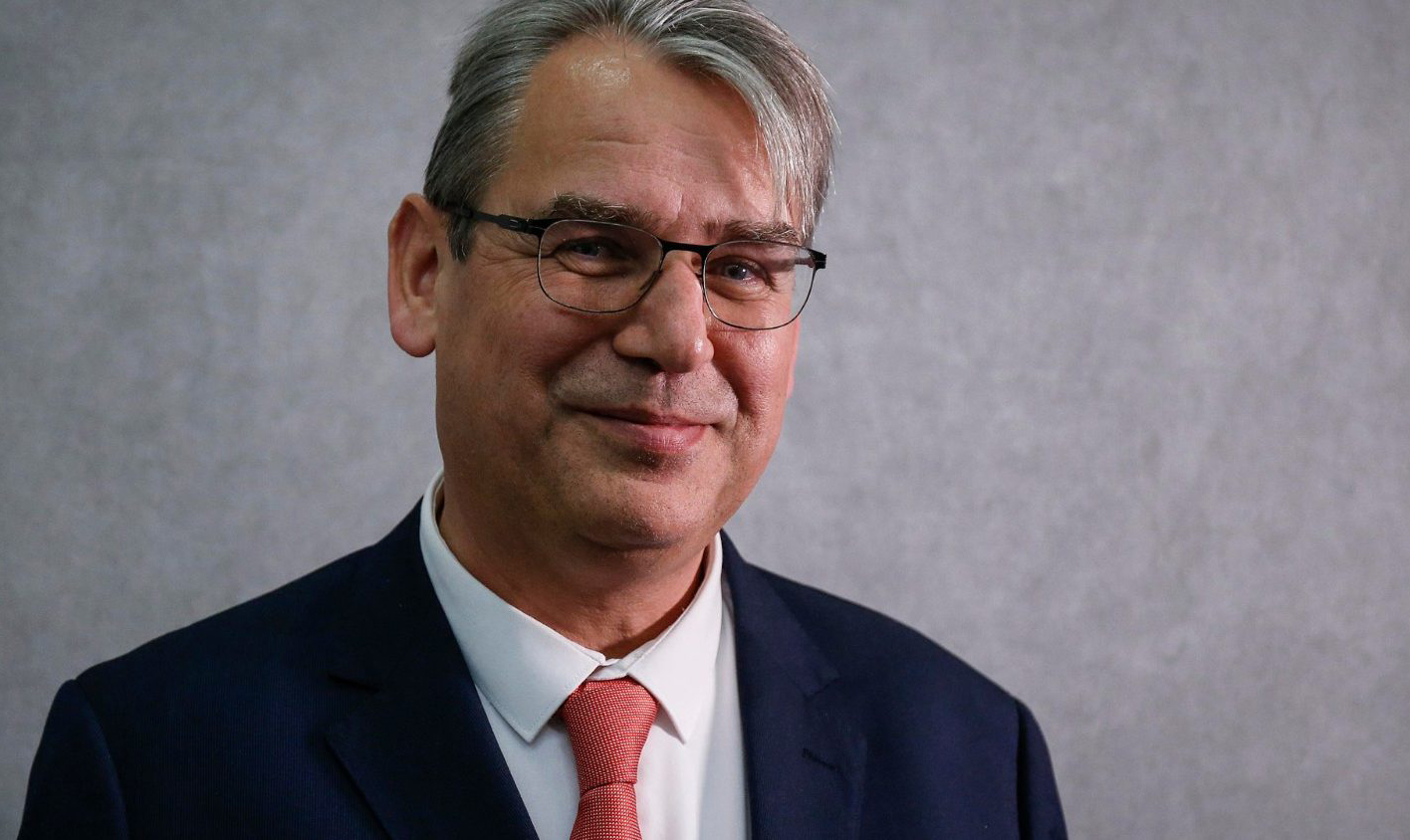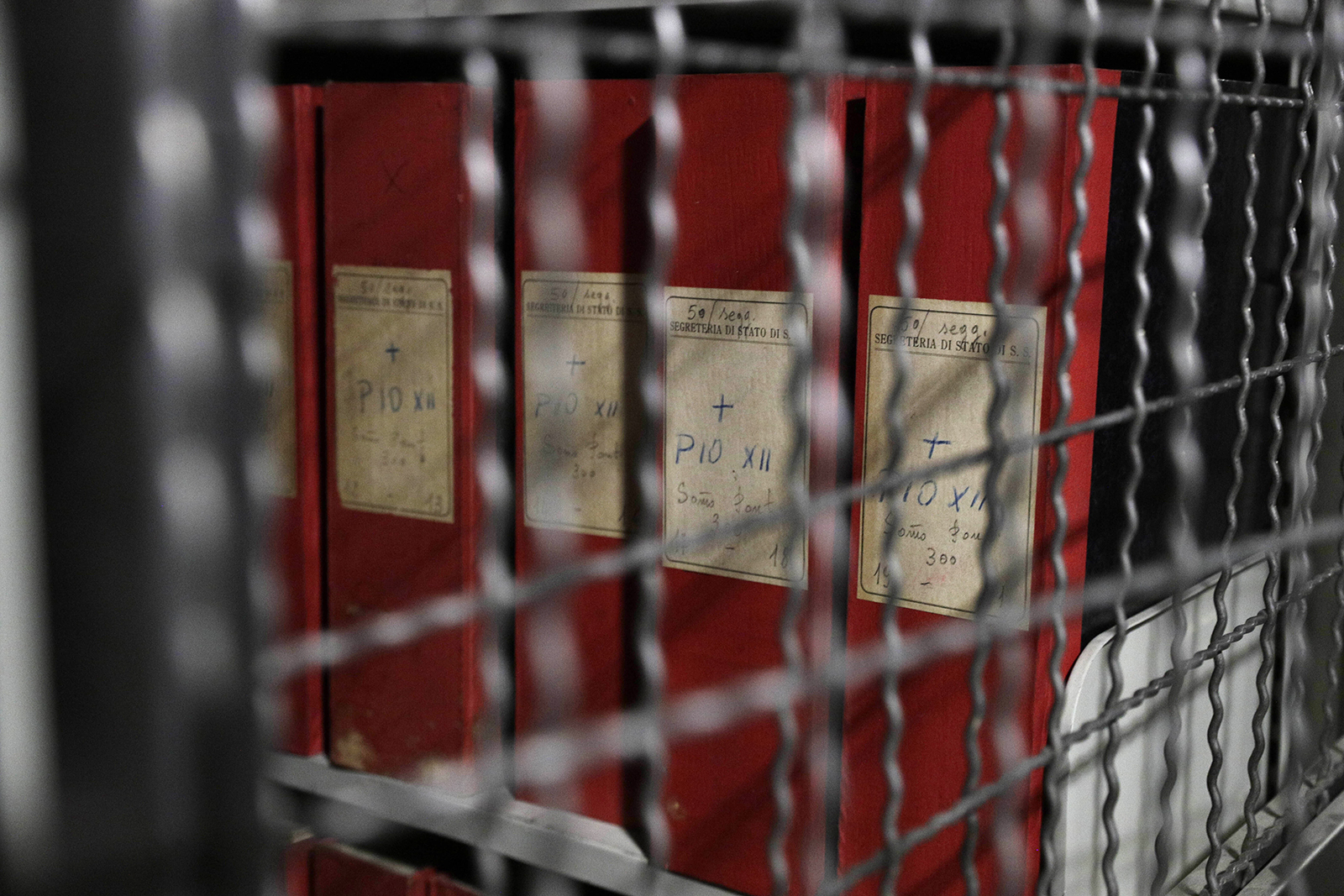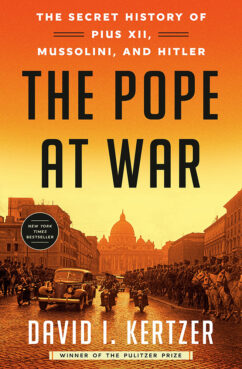VATICAN CITY (RNS) — For decades, historians have argued over the role played by the Vatican and Pope Pius XII in the persecution of Jews during the German Third Reich and the Second World War. Johan Ickx, director of the Vatican archives, defends Pius, saying the pope chose to remain silent even as he instructed clergy around the world to help Jewish communities.
But, Ickx said in a recent interview, don’t hold your breath looking for proof.
“Pius XII was aware of his silence,” Ickx told a small group of Vatican journalists on Tuesday (Dec. 6). But “silence is golden” in the world of diplomacy, Ickx argued, and Pius’ silence was essential in allowing the church freedom of action to help and save persecuted Jewry.
“It was the pope who gave the instruction to do this,” he said, despite “the great fear of being discovered.”
Pius XII reigned in the turbulent period between March 1939 and October 1958. Before his election, he had been a Vatican diplomat in Germany and in England, and his experience dictated his mild and conciliatory manner of speech as pope. After aligning itself with Germany during the First World War, the Vatican publicly kept its distance from the Nazi regime and drew closer to the Western powers, Ickx said. Documents show Pius supported the German resistance and worked closely with Allied forces.

Johan Ickx, director of the Vatican archives. Photo via Vatican News
The pope’s public silence on the Holocaust became especially controversial after the publication of “Hitler’s Pope,” a 1999 book by the journalist John Cornwell, which portrayed Pius XII as an antisemite more concerned about securing the future stability of the Vatican than saving Jewish lives. Critics and supporters of this view took to writing books and articles defending their interpretation of history in what were later known as the “Pius Wars.”
Historians and researchers heatedly debate the pope’s lack of condemnation of Hitler and his genocidal regime to this day.
As of June 2022, Pope Francis allowed anyone to have digital access to the Historical Archive of the Secretariat of State pertaining to Pius XII’s pontificate up to 1948. (The files had already been made available to researchers in March 2020.) With more than two decades of experience in the Vatican archives and Roman Curia, Ickx was chosen to oversee the digitization of the massive amount of data stored in boxes inside the Catholic city-state.
“It was like launching with a spaceship toward the nearest galaxy,” he said, referring to the effort of digitizing more than 1.6 million documents. Ickx said he was “shocked” when he found an entire folder dedicated to “Jews,” which contained previously unknown history of the Vatican’s wartime activities. While he had been aware that the church had saved a number of Jews, he had never understood where the order had come from.
“The input came from Rome, in particular from the Secretariat of State,” he said, which had established “a thick network in Italy and in the world” that helped bring Jewish families to safety.

Folders marked with labels reading “Pius XII” are seen through a grating during a guided tour for media of the Vatican library on Pope Pius XII, at the Vatican, Feb. 27, 2020. The Vatican’s apostolic library on Pope Pius XII, the World War II-era pope, and his record during the Holocaust opened to researchers on March 2, 2020. (AP Photo/Gregorio Borgia)
The folder contained more than 2,800 pleas for help from Jews directed to the pope; 15,000 more were sent to the office of the substitute, equivalent to a chief of staff. Papal nunzios, the pope’s representatives to countries around the globe, played a crucial role in providing support for Jews persecuted throughout Europe, according to Ickx.
The lack of written evidence, especially the direct mandate from Rome to help persecuted jews, is due to Vatican officials’ desire for secrecy. “They didn’t want to leave any trace,” Ickx said. But he said the evidence is the number of Jewish families the church was able to move across European borders and other frontiers during the war.
Last June, the sociologist and anthropologist David Kertzer published “The Pope at War: The Secret History of Pius XII, Mussolini, and Hitler,” which drew from the newly published Vatican records. Kertzer implies in the book that the Vatican was mostly concerned with saving Jews who had converted to Catholicism and underlined the church’s problematic history with promoting antisemitism in Europe and beyond.

“The Pope At War: The Secret History of Pius XII, Mussolini, and Hitler” by David Kertzer. Courtesy image
The book also revealed that the pope had engaged in private dialogues with Hitler though a German prince who was a Nazi sympathizer. Kertzer also reported that Pius’ advisers urged him not to openly challenge the racial laws enacted by the Italian fascist dictator Benito Mussolini.
When, in 1943, 1,260 Italian Jews were rounded up by the Nazis within earshot of Vatican City, Pius did not condemn the event but worked behind the scenes to aid the Jewish community, according to Kertzer’s book. About 250 of them could prove to be “non-Aryan Catholics” and were spared. Of those remaining, only 16 people returned from the concentration camps.
Ickx called Kertzer’s claim that the pope mostly focused on saving baptized Jews “false” but failed to present evidence to counter it. Many Jews saved by the church were baptized, he said, and sometimes were given fake baptism certificates to protect them from persecution or deportation. Ickx described it as a “door to safety for Jews,” as those who were baptized satisfied a legal loophole the Vatican could exploit to intervene more directly on their behalf.
But, Ickx added, “this does not exclude helping other Jews.”
Regarding Pius’ silence, the issue is more nuanced, the archivist said. It was Pius who first wondered if his “silence regarding the behavior of the Nazis would not be judged negatively,” during a meeting with Bishop Angelo Roncalli (later Pope John XXIII) at the Vatican in 1941.
According to Ickx, many historians today don’t understand the coded vocabulary used by the pope in his public pronouncements. He said Pius referred to Hitler and the Jews between 130 and 250 times in his speeches, without ever openly condemning them. But he admitted that the pope knew very well what was happening to Jews all over Europe.
“Was it silence? Yes, but it was an active silence,” he said.










